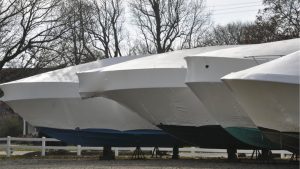Search results for: VIPREG2024 1x bet promo code Central African Republic
Falmouth Participates in Cape-wide Boat Shrink Wrap Recycling Program
This spring, the town of Falmouth will be accepting boat shrink wrap plastic at the town’s waste management facility as part of a recycling program run by WHOI Sea Grant and Barnstable County’ Cape Cod Cooperative Extension in partnership with municipalities across the Cape and Cape Cod AmeriCorps. Falmouth joins the towns of Bourne, Dennis,…
Read MoreWHOI-R-93-009 Liu, J.T. Morphodynamic Evo
WHOI-R-93-009 Liu, J.T. Morphodynamic Evo
Read MoreAccumulation of Red Tide Toxins in Larger Size Fractions of Zooplankton Assemblages from Massachusetts Bay, USA
Accumulation of Red Tide Toxins in Larger Size Fractions of Zooplankton Assemblages from Massachusetts Bay, USA Turner, J.T., G.J. Doucette, C.L. Powell, D.M. Kulis, B.A. Keafer, and D.M. Anderson Marine Ecology Progress Series, 13 pp., 2000 WHOI-R-00-01
Read MoreWHOI-R-91-005 Weiskel, P.K. Quantifying Diss
WHOI-R-91-005 Weiskel, P.K. Quantifying Diss
Read More1990-2000 Environmental Technologies Summary
Snapshot WHOI Sea Grant’s investment in environmental technologies has resulted in the development of new tools for analyzing and interpreting the effects of toxic chemicals on the reproduction, development, and disease defenses in marine animals and for detecting the presence of harmful algal species before bloom conditions occur. Background Coastal ecosystems in southeastern Massachusetts are…
Read MoreLarval Exposure to 4-Nonylphenol and 17ß-Estradiol Affects Physiological and Behavioral Development of Seawater Adaptation in Atlantic Salmon Smolts
Larval Exposure to 4-Nonylphenol and 17ß-Estradiol Affects Physiological and Behavioral Development of Seawater Adaptation in Atlantic Salmon Smolts Lerner, D.T., B. Thrandur Björnsson, and S.D. McCormick Environ. Sci. Technol., Vol. 41, pp. 4479-4485, 2007 WHOI-R-07-006
Read More2000-2002 Projects
Controls on Nitrogen Fluxes from Estuarine Sediments: The Importance of Salinity Anne E. Giblin and Charles S. Hopkinson, Jr., The Ecosystems Center, Marine Biological Laboratory Nitrogen is the key element limiting primary production in estuaries. While a great deal of research has been done to examine the relationship between nitrogen loading from a watershed and…
Read MoreIdentification, Functional Characterization, and Regulation of a New Cytochrome P450 Subfamily, the CYP2Ns
Identification, Functional Characterization, and Regulation of a New Cytochrome P450 Subfamily, the CYP2Ns Oleksiak, M.F., S. Wu, C. Parker, S.I. Karchner, J.J. Stegeman, and D.C. Zeldin The Journal of Biological Chemistry, Vol. 275, No. 4, pp. 2312-2321, 2000 WHOI-R-00-0
Read MoreA Simple Technique for Fine-scale, Vertical Sectioning of Fresh Sediment Cores
A Simple Technique for Fine-scale, Vertical Sectioning of Fresh Sediment Cores Fuller, C.M. and C.A. Butman Journal of Sedimentary Petrology, Vol. 58, No. 4, pp. 763-768, 1988 WHOI-R-88-008
Read MoreEffects of Aqueous Exposure to Polychlorinated Biphenyls (Aroclor 1254) on Physiology and Behavior of Smolt Development of Atlantic Salmon
Effects of Aqueous Exposure to Polychlorinated Biphenyls (Aroclor 1254) on Physiology and Behavior of Smolt Development of Atlantic Salmon Lerner, D.T., B. Thrandur Björnsson, and S.D. McCormick Aquatic Toxicology , Vol. 81, pp. 329-336, 2007 WHOI-R-07-005
Read More
